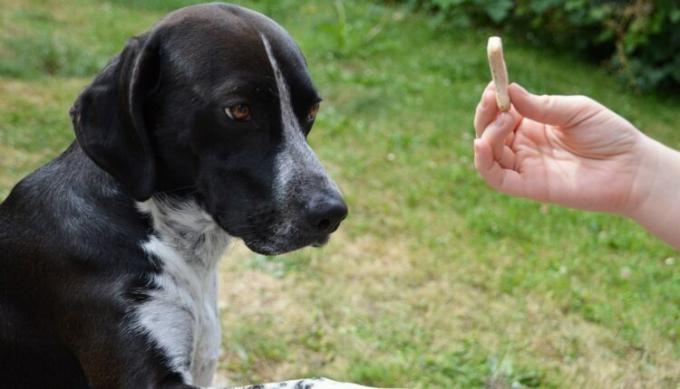Antisocial behavior in dogs can be attributed to their temperament, however, it may have been triggered by the pet's difficult past.
Not liking to socialize can be a reaction caused by fear, anguish, anxiety or aggression from the dog. Find out now what the possible reasons are and what to do with antisocial dogs.
see more
There are some dog breeds considered perfect for people…
Is it normal for cats to sleep on their owners feet? understand this behavior
Antisocial Dog: Why?
At first glance, a dog is often considered antisocial when it doesn't like guests or other animals. Some dogs really hate having strangers around.
However, different events may have contributed to this. If you have the opportunity, be sure to hire a training professional or veterinarian to better understand the pet's family, mental and social history. The more information you have, the better you will be able to help your little friend.
- Stress and traumas experienced in the past
Some dogs come from a past marked by conflicts with other people or other animals, these experiences contribute to a different (negative) behavior with visitors or other dogs.
- Fear
Fear can stem from past situations, but also from current situations. For example, if you have a pet and you fight a lot with it, it is possible that fear makes it react in an antisocial way. Aggression is one of the main responses to fear.
- lack of training
Another factor that can make a dog antisocial is the lack of training/training. Good training can contribute positively to the behavior of dogs and thus prevent imbalances and misbehavior.
- How to deal with an antisocial dog
Some measures can and should be taken to help the dog to improve the antisocial behavior. This is relevant not only for living at home and with visitors, but for the animal itself.
- encourage socialization
When you have visitors at home, call the dog to meet them and then encourage him to smell and interact with them. Be careful not to force any situation, if you see that the dog is uncomfortable, leave him alone.
Socialization is important from the time they are puppies, but it can be done with larger dogs as well, as long as they are properly supervised, and remember: respect the pet's space.
- Training is a valid option

Finally, good training can help your dog a lot. It is a process that can take a little time, but the benefits in quality of life, especially in mental health, are much greater than the possible delay.
Ideally, training should start when they are small, but it is also possible for older dogs, so don't give up!

